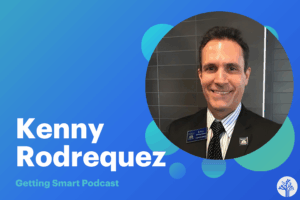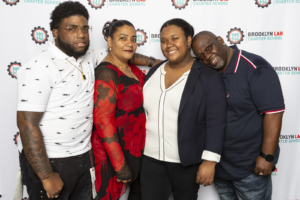Getting Prepared For Middle School: 7 Things Soon-to-Be Middle Schoolers Should Know

By Megan Mead
Sometimes when you work from a coffee shop you overhear conversations. Sometimes you laugh, sometimes you get frustrated and sometimes, just sometimes, you are inspired.
Today I was inspired. I was inspired by a conversation between a timid, nervous “soon to be middle schooler” and his grandpa. It started like this:
Grandpa: “I have been asked to talk to you about getting ready for middle school. It sounds like you are a little nervous about it and I just want to talk through some ideas that might help.” Side note: Grandpa was prepared, he had questions and an iPad. This was not just a random conversation, this was intentional and set the stage for a meaningful conversation.
Pre-Middle Schooler: “This is dumb. I just don’t want to go.”
They continue a little bit and then I couldn’t help myself, I politely interrupt and explain that as a former teacher I think this is such a cool conversation to be having. The student looked at me, terrified, and said,“but I am not prepared.” I start talking to them a little bit and we all agree that not feeling prepared can be really scary and then we transition into excitement and what that feels like.
And then, I step aside and let them continue. But before moving on to my other work I make a mental note to remember this conversation. My soon-to-be preschooler will also be a soon-to-be middle schooler, and eventually so will his younger brother. I came up with 7 things I want them to do (and that I want to talk about before they get there):
- Get uncomfortable. New environments are tricky, but if we pretend that we aren’t going to be uncomfortable, we are doing ourselves a disservice. Acknowledge that you may be uncomfortable, talk about what it feels like to be uncomfortable, then you won’t be surprised when it happens. Instead, you can be proactive about what you might do when you get uncomfortable. I learned this from the Berenstain Bears Get Stage Fright.
- Make a friend. Sometimes we are lucky and it feels like friends drop out of the sky, but it doesn’t always happen this way. Sometimes we have to work for friends. Don’t wait for magic to happen, be the first one to talk. Introduce yourself, ask a question. Make a friend.
- Find something you are great at. This one was hard for the student I was eavesdropping on. But it was important and the grandpa did a great job driving it home. There will be things that we really enjoy and things that we really excel at, there will also be things that we don’t enjoy and that we struggle with. Be adventurous, try new things and find what you love.
- Respect the things you struggle with. Just because you don’t love it at first, doesn’t mean you get to ignore it. The things that are hardest in life are the things that are the most fun to tackle. And remember, others may be great at the things you struggle with, so ask for help.
- Make a mistake. Do you ever make mistakes? Of course you do. We all do. But do middle schoolers realize that mistakes SHOULD be made and celebrated? Developing a growth mindset is especially important in middle school where concepts get more and more difficult and learning becomes increasingly more independent. They are part of the learning experience.
- Choose kindness. There is a Facebook post out there about a tube of toothpaste (if you haven’t seen it, check it out) and it reminds me of what I would tell my own students on the first day of school. In the words that you choose, you have the power to make someone’s days great, or to make it horrible. Choose kindness. Once you have said something, you can’t take it back. Once the toothpaste is out of the tube, it is nearly impossible to force it back in, the same is true with what you say, it’s pretty hard to “unsay” the words we have spilled out.
- Apologize. BUT, sometimes you will say something or do something that you shouldn’t have. Acknowledge and apologize.
There is also the logistics conversation that needs to happen that can help kids feel confident from the moment they walk in the door. A lot of schools will address this stuff through some form of orientation, but it doesn’t hurt to have them as a 1:1 (opens the door for your child to ask questions that they may not want to ask in a larger group).
- Where is the first place you will go on the first day of school (think about a map, not just a room number)?
- What are your teachers’ names?
- How will you know when to transition from one class to the next?
- Do you know who to ask for if you need help?
- Are there specific rules that might be different from those in elementary school?
- Do you know anyone at the school?
- When is lunch? What will you eat?
- How will you get to school? How will you get home?
I think one of the things that I most appreciated about overhearing this conversation was the reminder of the importance of being intentional. This is one of the four traits identified as part of the Smart Parents project, and to see a specific example in action made me smile. We are celebrating the 1 year anniversary of the Smart Parents Project, head to the campaign page for a free download of the e-book!
Have you had similar conversations with your own kids? Or are you a teacher who has these conversations regularly? Tell me how you do it? Any questions or best practices to add?
For more middle school fun, check out:
- Project Based Learning and the Middle School Mind
- Understanding Middle Schoolers: 4 Tips for Success
- Make or Break: Why Middle School Math Counts
Stay in-the-know with all things EdTech and innovations in learning by signing up to receive the weekly Smart Update.







0 Comments
Leave a Comment
Your email address will not be published. All fields are required.